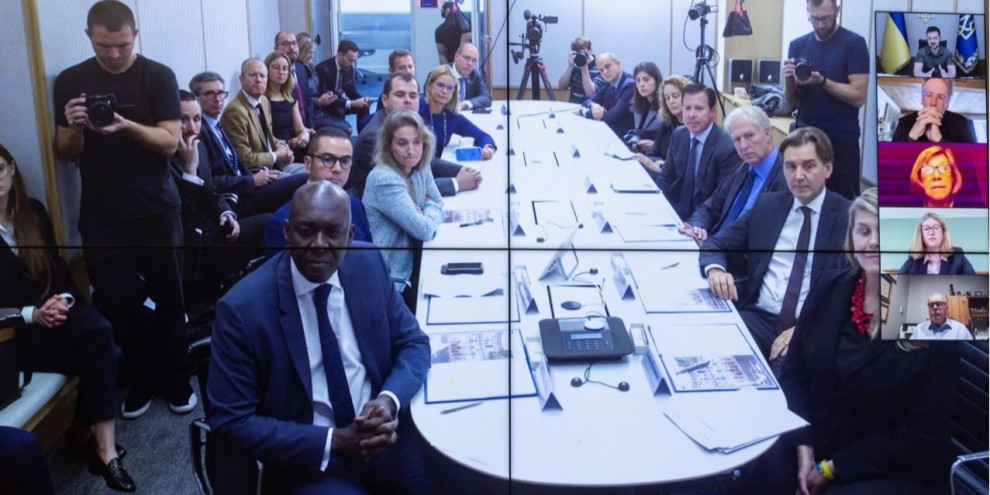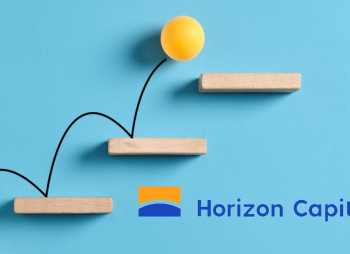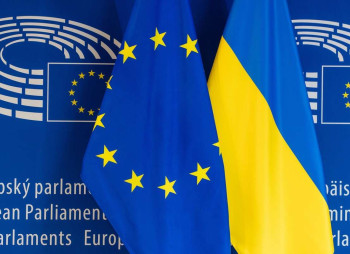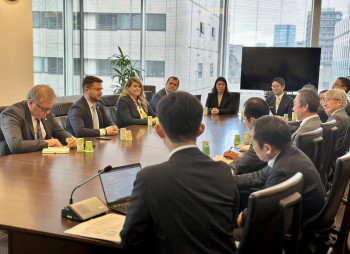The EBRD has committed up to US$ 40 million (€40 million) to Horizon Capital Growth Fund IV (HCGF IV), managed by Horizon Capital, a leading private-equity manager in Ukraine and Moldova and a longstanding EBRD client. The Bank may increase its commitment to the fund up to US$ 50 million at a later date.
HCGF IV aims to raise up to US$ 250 million to make growth equity investments, ranging on average US$ 10 million to USD$ 30 million, with a focus on tech and export-oriented small and medium-sized enterprises (SMEs) in Ukraine and Moldova.
The agreement, signed today at the International Finance Corporation’s (IFC) London office, is in line with the EBRD’s commitment to investing over €1 billion in Ukraine this year.
“We welcome Horizon’s new fund, which will have an important catalytic effect on the Ukrainian and regional market,” said Hassan El Khatib, EBRD Managing Director, Equity, at the signing ceremony. “The fund will not only improve the resilience of private capital markets in the region by developing private equity as an alternative funding source but also boost inclusion by offering support to businesses affected by the war. Through this investment, the EBRD and its international partners are effectively bridging a financing gap caused by adverse market conditions, by bringing in a private equity fund to add to the pool of financing available.”
The fund’s first-close investors, alongside the EBRD, include the IFC, DEG - Deutsche Investitions- und Entwicklungsgesellschaft, the Dutch Entrepreneurial Development Bank (FMO), the Swiss Investment Fund for Emerging Markets, the Western NIS Enterprise Fund, and the Zero Gap Fund, an impact investing collaboration between The Rockefeller Foundation and the John D. and Catherine T. MacArthur Foundation.
The Russian invasion of Ukraine on 24 February has created unprecedented challenges for the Ukrainian economy. Some businesses have ceased operations, while others have been forced to adapt to a new reality of logistical disruptions, fuel deficits, relocated production facilities and staff, tighter currency controls and shortages of finance. Ukrainian companies have demonstrated great resilience, however, while tech-focused SMEs have proven their importance to the economy since the start the war, contributing to the country’s economic revival.
HCGF IV will maintain Horizon Capital’s focus on tech and export-oriented companies, initiated over a decade ago, building on the contribution made to the region’s information technology (IT) sector by Horizon Capital’s predecessor vintage 2017 US$ 200 million fund, also backed by the EBRD.
In late 2021, Horizon Capital launched fundraising for its new flagship fund, originally aiming to reach first close by April 2022. The start of the war on Ukraine delayed the process, but fundraising was relaunched soon afterwards, underpinned by the strong performance of the existing Horizon portfolio companies.
The EBRD has pledged to invest over €1 billion this year to support the Ukrainian economy, with risks shared by donors and partners. To address the Ukrainian economy’s most pressing current needs, the EBRD is prioritising five areas: trade finance, energy security, vital infrastructure, food security (covering the provision of liquidity to farmers through banks for the spring sowing season, as well as to agribusiness companies and food producers and retailers) and providing liquidity to pharmaceutical companies. So far, the EBRD has invested €920 million in response to the war on Ukraine.
The EBRD was swift to condemn the Russian invasion of Ukraine on 24 February and pledged to stand by Ukraine. In early April, the EBRD’s Board of Governors voted to suspend the access of Russia and Belarus to EBRD finance and expertise, and the Bank has closed its offices in the two countries.






